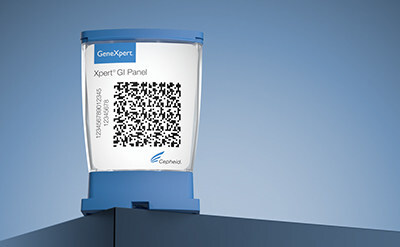Septerna, Inc., a clinical-stage biotech company focused on pioneering therapies based on G protein-coupled receptors (GPCRs), recently completed its initial public offering (IPO), marking a significant milestone for the South San Francisco-based firm.
Known for its innovative approach to GPCR drug discovery, Septerna leveraged its proprietary Native Complex Platform to establish a robust pipeline targeting endocrinology, immunology, inflammation and metabolic diseases.
The IPO was upsized due to strong investor interest, with Septerna offering 18.4 million shares of its common stock at $18.00 per share. This total includes an additional 2.4 million shares purchased by underwriters through an option executed in full. Gross proceeds from the offering reached $331.2 million before deductions for underwriting discounts, commissions and other expenses associated with the offering. The shares began trading on the Nasdaq Global Market (Nasdaq: SEPN) on October 25, 2024, with a successful closing completed on October 30, 2024.
This funding infusion is poised to support Septerna’s expanding pipeline and ongoing clinical trials within its core therapeutic areas. With GPCR-targeted treatments holding promise across critical medical needs, Septerna is well-positioned for impact.
Pipeline Highlights
SEP-786 for Hypoparathyroidism (Endocrinology)
Hypoparathyroidism, a rare condition affecting approximately 70,000 people in the US, can lead to severe complications like seizures and cardiac arrhythmias. SEP-786, an oral parathyroid hormone 1 receptor (PTH1R) agonist, aims to restore essential mineral balance. Phase I trials are underway, with data expected in mid-2025.
SEP-631 for Chronic Spontaneous Urticaria (Immunology/Inflammation)
Chronic spontaneous urticaria (CSU), a debilitating inflammatory skin condition, affects 1.5 million patients in the US. SEP-631, a selective mas-related G-protein coupled receptor member X2 (MRGPRX2) inhibitor, modulates mast cell activation. Regulatory submissions for trial initiation are anticipated soon.
TSHR Program for Graves’ Disease and Thyroid Eye Disease (Endocrinology)
Graves’ disease and thyroid eye disease (TED) impact millions, often requiring intensive treatments. Septerna’s thyroid-stimulating hormone receptor (TSHR) modulators offer a potentially disease-modifying oral treatment. Key compounds are advancing toward clinical candidate selection.
Incretin Programs for Obesity and Type 2 Diabetes (Metabolic Diseases)
Septerna targets obesity and type 2 diabetes (T2D), affecting over 800 million globally, with oral agonists for glucagon-like peptide-1 (GLP-1), gastric inhibitory polypeptide (GIP) and glucagon receptors. These agents may address the limitations of current injectables, with lead compounds nearing development candidate selection.
The success of the Septerna IPO not only reins in market confidence in Septerna’s scientific direction but also brings attention to its potential to innovate within small molecule therapeutics, addressing complex medical challenges.
Other companies advancing GPCR research include Confo Therapeutics, which recently revealed a novel, highly selective antibody-based GPCR agonist for anti-obesity therapies, and Antiverse, which plans to use AI-driven technology to design antibodies for complex GPCRs and ion channels. Longboard Pharmaceuticals, focused on neurological diseases, is also progressing in the GPCR field with bexicaserin for Dravet syndrome.












Join or login to leave a comment
JOIN LOGIN